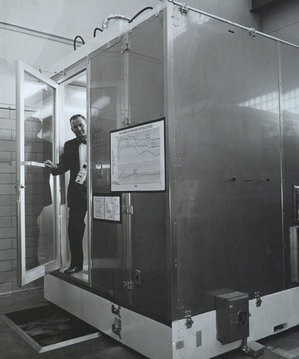(p. A13) Eric Schmidt, executive chairman of Google, gave a remarkable interview this month to The Washington Post. So remarkable that Post editors preceded the transcript with this disclosure: “He had just come from the dentist. And he had a toothache.”
Perhaps it was the Novocain talking, but Mr. Schmidt has done us a service. He said in public what most technologists will say only in private. Whatever caused him to speak forthrightly about the disconnects between Silicon Valley and Washington, his comments deserve wider attention.
Mr. Schmidt had just given his first congressional testimony. He was called before the Senate Judiciary Antitrust Subcommittee to answer allegations that Google is a monopolist, a charge the Federal Trade Commission is also investigating.
“So we get hauled in front of the Congress for developing a product that’s free, that serves a billion people. OK? I mean, I don’t know how to say it any clearer,” Mr. Schmidt told the Post. “It’s not like we raised prices. We could lower prices from free to . . . lower than free? You see what I’m saying?”
. . .
“Regulation prohibits real innovation, because the regulation essentially defines a path to follow,” Mr. Schmidt said. This “by definition has a bias to the current outcome, because it’s a path for the current outcome.”
. . .
Washington is always slow to recognize technological change, which is why in their time IBM and Microsoft were also investigated after competing technologies had emerged.
Mr. Schmidt recounted a dinner in 1995 featuring a talk by Andy Grove, a founder of Intel: “He says, ‘This is easy to understand. High tech runs three times faster than normal businesses. And the government runs three times slower than normal businesses. So we have a nine-times gap.’ All of my experiences are consistent with Andy Grove’s observation.”
Mr. Schmidt explained there was only one way to deal with this nine-times gap, which this column hereby christens “Grove’s Law of Government.” That is “to make sure that the government does not get in the way and slow things down.”
Mr. Schmidt recounted that when Silicon Valley first started playing a large role in the economy in the 1990s, “all of a sudden the politicians showed up. We thought the politicians showed up because they loved us. It’s fair to say they loved us for our money.”
He contrasted innovation in Silicon Valley with innovation in Washington. “Now there are startups in Washington,” he said, “founded by people who were policy makers. . . . They’re very clever people, and they’ve figured out a way in regulation to discriminate, to find a new satellite spectrum or a new frequency or whatever. They immediately hired a whole bunch of lobbyists. They raised some money to do that. And they’re trying to innovate through regulation. So that’s what passes for innovation in Washington.”
For the full commentary, see:
L. GORDON CROVITZ. “INFORMATION AGE; Google Speaks Truth to Power; About the growing regulatory state, even Google’s Eric Schmidt–a big supporter of the Obama administration–now feels the need to tell it like it is.” The Wall Street Journal (Mon., October 24, 2011): A13.
(Note: ellipses between paragraphs added; ellipsis internal to Schmidt quote, in original WSJ commentary.)
The original Eric Schmidt interview with the Washington Post, can be read at:
http://articles.washingtonpost.com/2011-10-01/national/35278181_1_google-chairman-eric-schmidt-regulation-disconnects


